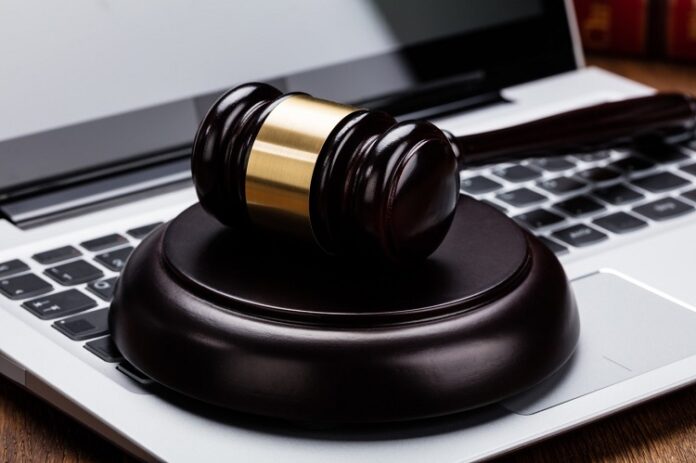The internet seems like an open, free space where your daily activities are unlikely to have legal consequences. Not a lot of people realize that you can commit crimes on the Internet and face penalties or even jail time.
Do you want to make sure you’re using the Internet wisely? This article will tell you what you need to know about internet law.
What is Internet Law?
Internet law refers to the rules and regulations that relate to the use of the internet. Breaking the law when it comes to the internet is a lot more tricky to understand and enforce because the internet is international in scope and it may be more difficult to track illegal activity.
If you are in a position where you’ve violated an internet law, you can contact Andrea Kolski for legal representation.
How to Regulate Internet Law
Every country regulates online content differently, and, as a result, internet law will differ. Some countries limit the level of digital crime or limit the amount of content being shared on the internet by using censorship.
Another concrete method of reducing criminal activity is by having legislation and monitoring. Having internet laws will deter people from committing a crime without knowing that it’s not allowed. The challenge is in tracking down the cases and prosecuting them accordingly.
Additionally, cultural norms will play a part. Society often gets to decide what is acceptable and unacceptable. If a person violates this by conducting an unethical activity, they may face a backlash from the people in their community.
The government constantly regulates the internet to prevent serious crimes such as child pornography, terrorism, and murder. The presence of internet monitoring activities, however, is still seen as controversial. Some people may consider it a breach of their democratic freedoms, while others believe it’s a necessary step to curbing violence and crime.
Sometimes, using keywords that relate to crime can put you on the government’s watchlist. This means that you have to be careful regarding what type of content you search for and read. You may also accidentally stumble upon the dark web.
Crimes That Violate Internet Law
There are various crimes that can be committed on the internet. These are some common ones that involve breaking the law and may result in legal repercussions.
- Torrenting Files
Haven’t you ever wanted to watch a movie that is not available on your subscribed streaming sites? You may end up going on a site to download it for free.
Torrenting files refers to the process of sharing documents between internet users that involve illegally uploaded content. This can mean copyrighted films, songs, and more.
Downloading copyrighted content without having accessed it with permission will involve breaking the law. With this in mind, very few arrests have actually occurred as a result of torrenting. More often than not, you may experience restricted internet or receive a warning letter instead.
- Child Pornography
Child pornography is a serious crime on the internet and is one that has led to multiple arrests. Whether you’ve uploaded or simply viewed child pornographic content, you are breaking the law. Child pornography includes images, videos, and more that feature minors who are under 17 years old.
- Identity Theft
Identity theft involves instances where a person obtains someone else’s personal and financial information by using their identity. This crime may include the person committing fraud by using another person’s finances to spend.
Identity theft is a digital crime with severe financial consequences for the victim and is, therefore, something that is heavily regulated.
- Terrorism
No explanation needed, right? Acts of terrorism have been made easier by the spread of ideas on the internet. A radical group in a small country is now able to reach readers in different countries across the world.
The spread of ideas in this way can be dangerous and can result in radicalism through the internet.
- Hacking and Spreading Malware
The process of accessing somebody else’s computer or digital systems is an illegal act. Cyber hacking or spreading viruses can result in serious damage to a person or a corporation’s software. Even more, it may result in the loss of personal and sensitive information.
There are different types of cyber crimes that fall under this category. For instance, someone may gain access to your information and hold them hostage while demanding a ransom.
Another digital crime that involves spreading malware is through a phishing scheme. This refers to sending emails or messages to people which, once they open it, downloads a virus onto their system and damages it.
- Murder, Drugs and More
Normal criminal activities will also be illegal on the internet. Spreading information about accessing, selling, or buying drugs, for instance, will not be acceptable. Even if you feel like going on the internet is a lot more private than committing criminal activity in the real world, know that you are still going to be monitored and that you will still be breaking the law.
Breaking the Law Online
It may be difficult to know what’s legal or illegal on the internet, which is where internet law comes in. Activities such as torrenting files, accessing child pornography, committing terrorism, or engaging in cybercrimes are all illegal and will result in punitive action.
A common hindrance to proper regulation of internet law, however, is the difficulty in enforcing some of the rules. The internet is international in scope and some acts may fall in the grey areas of legality.
Did you find this article helpful? Check out the rest of our Technology section.


